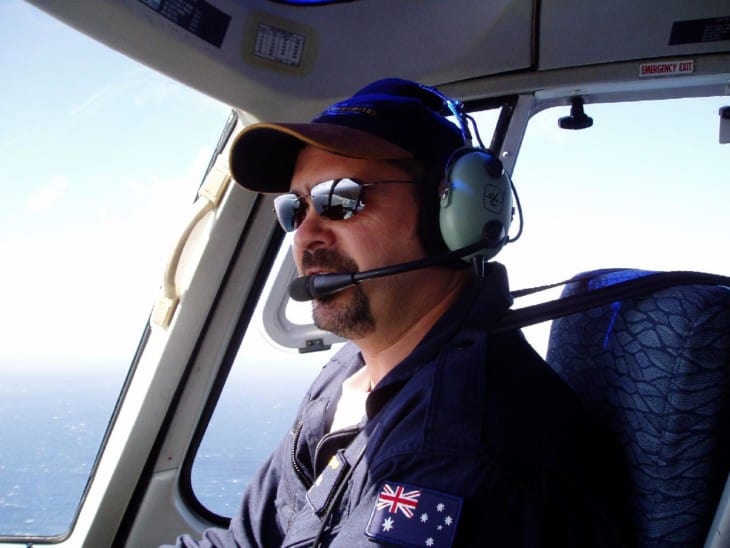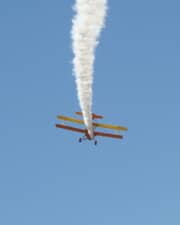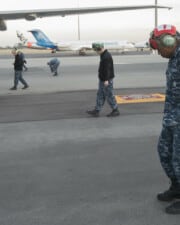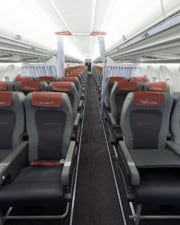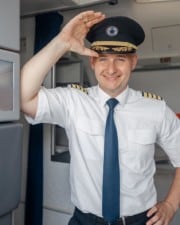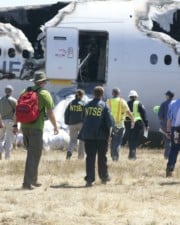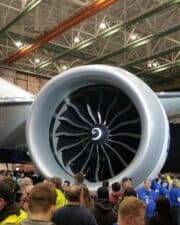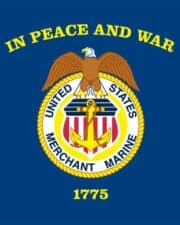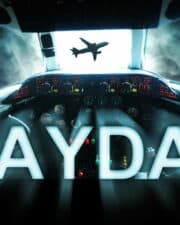Wilco is one of many unique phrases that people hear when listening to pilots speak over the radio. Shorthand expressions help aviators communicate more efficiently over two-way radios. So, what does ‘wilco’ mean and where does it come from?
TLDR – Wilco means “will comply.” It is a shorthand originally developed for two-way radio communication. It was originally preceded by “Roger,” which means “received.”
Where Does the Word Wilco Come From?
Wilco is the second half of a common phrase used for two-way radio communication. The phrase combines two words – Roger and Wilco. Roger was used for the letter “R” in the phonetic alphabet when the radio was invented.
The word “Roger” stands for “received.” It means that a message was received and understood. The second half of the phrase, “Wilco,” stands for “will comply.” It confirms that the recipient plans on complying with the request.
While “Roger Wilco” was a common phrase in aviation and other operations that involve radio communications, it is now considered redundant. Instead of saying “Roger Wilco,” pilots typically simply say “Wilco.” Complying with the request already implies that the recipient received and understood the request.
What Is the Wilco Meaning for Military Use?
“Wilco” is shorthand for “will comply.” It has the same meaning when used by the military as when used by pilots or anyone with a radio. In fact, the phrase was likely created for military use.
The true origin of the word “Wilco” is not known. However, historians believe that the phrase Wilco likely originated in 1938, shortly after the invention of the radio.
The military frequently used shorthand and various phrases to simplify communications and reduce the risk of miscommunications. The practice of using shorthand is one example of radiotelephony procedures used to clarify spoken communications over two-way radios.
The shorthand phrases and abbreviations used for radio communications are called procedure words. Other common procedure words and phrases include over, out, and “out to you.”
When an individual finishes speaking, they say “over” to inform the other party that they are ending their transmission and are ready for a response. The word “out” is used to end a transmission when no response is required from the other party.
As with “Roger Wilco,” saying “over and out” is redundant, as “out” already signifies that the individual is ending their transmission. “Out to you” is a phrase used when an individual is ending the transmission with the current speaker and is about to call someone else.
Why Do Pilots Say Niner?
Niner means “nine” in the ICAO phonetic alphabet. Niner, fife, and tree are examples of aviation terms that were developed to avoid miscommunications. The International Civil Aviation Organization (ICAO) adopted and modified a phonetic alphabet created in 1927.
The ICAO phonetic alphabet is the most used radiotelephony spelling alphabet. A radiotelephone alphabet helps individuals avoid confusion. It provides distinct names that people can easily understand over the radio.
Due to the quality of the channel, language differences, and background noises, radio communication does not always provide clear communications. The numbers 3, 5, and 9 may easily be misunderstood when dealing with communication issues.
Why Do Pilots Say, “George Is Flying the Plane Now”?
“George is flying the plane now” indicates that the airplane’s autopilot system is now deployed. “George” is a nickname given to the autopilot system, which is typically used when a plane reaches a cruising altitude between 33,000 and 42,000 feet.
Why Do Pilots Say Pan-Pan?
“Pan-pan” is a phrase used by pilots to quickly gain the attention of the air traffic controllers. It is used for urgent situations that are not yet an immediate emergency. Some pilots may also say “pan-pan-pan.”
“Pan-pan” calls take priority over other calls on the radio, requiring other pilots to cease transmissions and give the channel over to the pilot that made the call.
A pilot may say “pan-pan” when requiring assistance upon landing. For example, if a passenger has a medical emergency, the pilot may coordinate with air traffic control to arrange medical care.
Pilots may also use the phrase when they get lost or need urgent assistance from air traffic control. When using the phrase, the pilot waits for air traffic control to respond. The pilot then broadcasts their callsign and the reason for the call.
Related Posts
